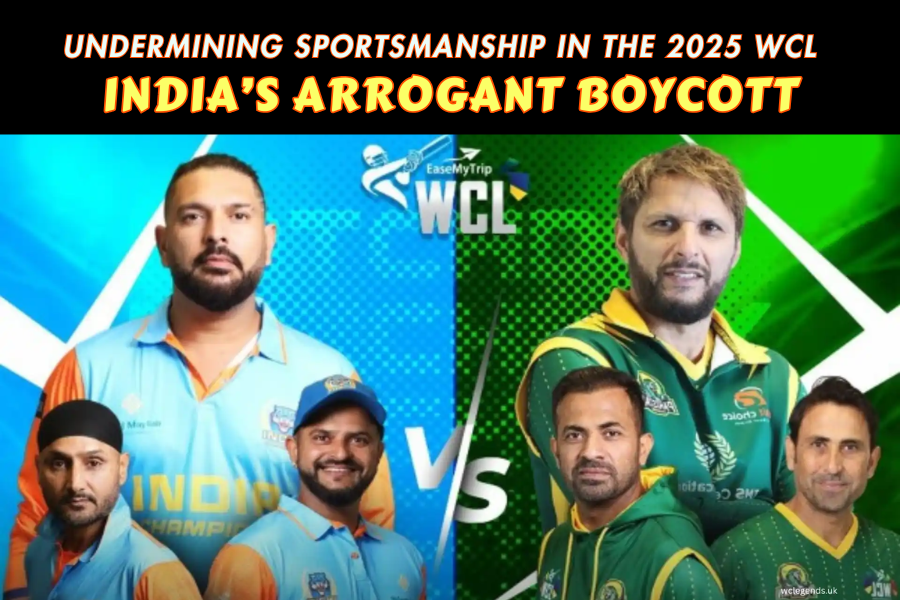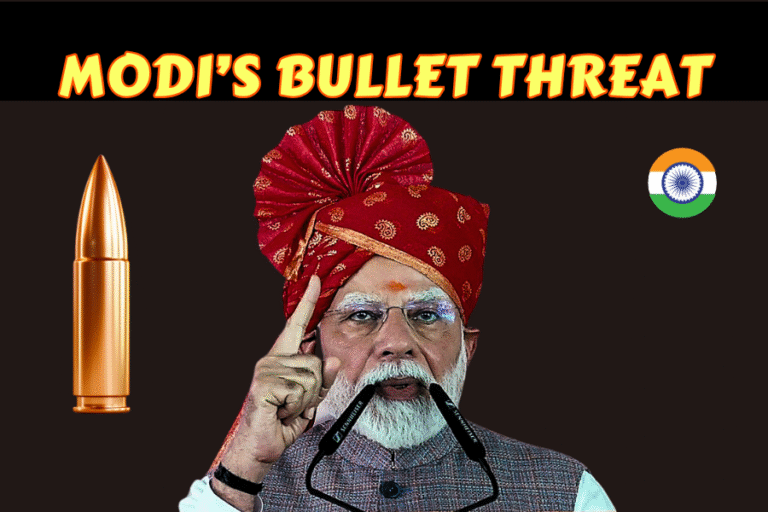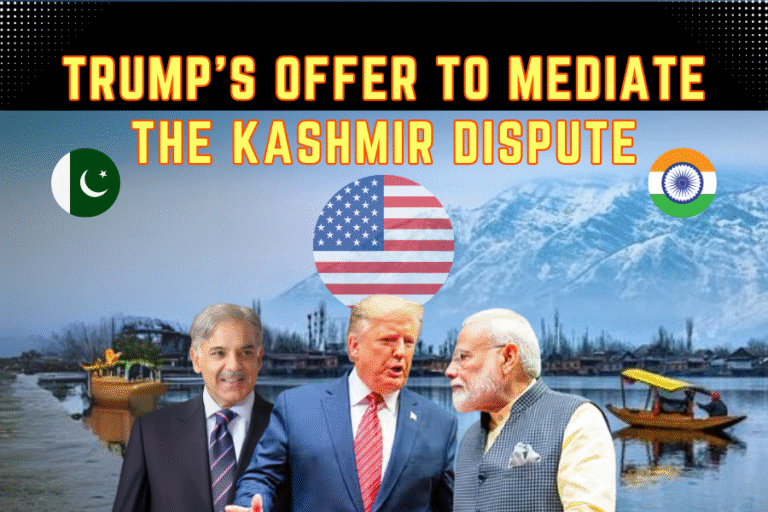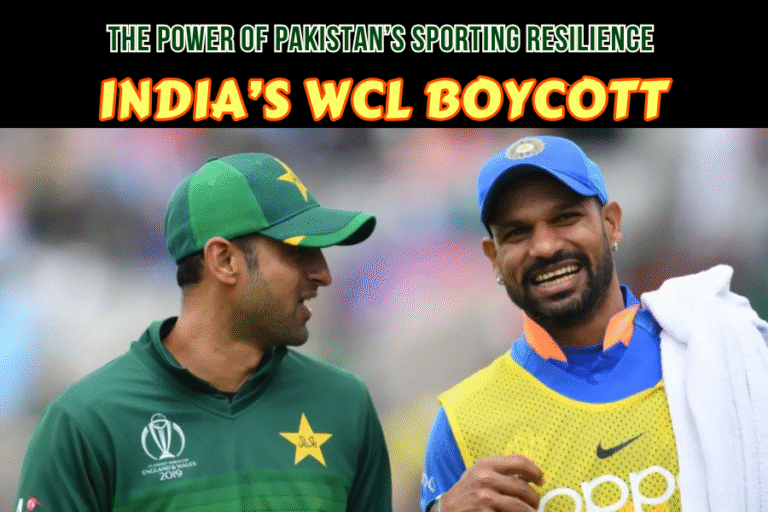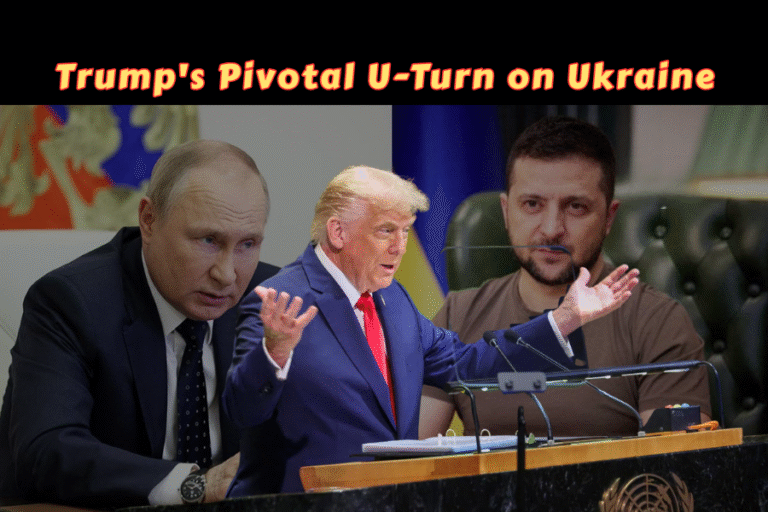(Mohsin Tanveer)
Introduction
In July 2025, Indian cricket legends, including Yuvraj Singh, Shikhar Dhawan, and Suresh Raina, disgracefully refused to face Pakistan in the World Championship of Legends (WCL) in Birmingham, England, citing the flimsy pretext of geopolitical tensions following the April 22, 2025, Pahalgam terror attack. Consequently, this arrogant decision led to the cancellation of both a league-stage match and a semi-final, unjustly allowing Pakistan to advance to the final without a contest. For instance, Pakistan’s team, led by Shahid Afridi, stood ready to compete, embodying true sportsmanship. However, India’s boycott, backed by sponsor EaseMyTrip’s withdrawal, reflects a narrow-minded mentality that poisons cricket’s unifying spirit. Moreover, this act exacerbates tensions rooted in the May 2025 Indo-Pakistan conflict, where India’s Operation Sindoor escalated regional hostility. This article condemns India’s actions, celebrates Pakistan’s resilience, and explores the incident’s implications for sports diplomacy and regional stability.
Historical Context
India-Pakistan relations have been marred by conflict since 1947, with wars in 1947, 1965, 1971, and 1999 fueling mutual distrust, particularly over Kashmir. For example, cricket initially bridged this divide, with tours in the 1950s and 1978 fostering goodwill. However, India’s refusal to engage in bilateral cricket since the 2008 Mumbai attacks has politicized the sport. Specifically, the May 2025 Pahalgam attack, which killed 26 civilians, and India’s retaliatory Operation Sindoor deepened the rift. Consequently, India’s policy of avoiding Pakistan in sports, as seen in the 2025 Asia Cup and WCL, prioritizes political posturing over fair play. In contrast, Pakistan’s consistent willingness to compete, even amid tensions, highlights its commitment to cricket’s spirit. Thus, India’s repeated boycotts reveal a pattern of arrogance rooted in historical grievances.
The WCL Incident: Details and Reactions
The WCL, a T20 league for retired players, promised a thrilling India-Pakistan clash in July 2025. For instance, organizers scheduled a league-stage match and a semi-final at Edgbaston. However, Indian players, led by Yuvraj Singh, refused to participate, citing the Pahalgam attack as an excuse. Shikhar Dhawan declared on May 11, 2025, “My country is everything to me, and nothing is above the nation,” a statement dripping with sanctimonious nationalism. Similarly, EaseMyTrip withdrew sponsorship, claiming, “Terror and cricket cannot go hand in hand,” aligning with India’s narrative of Pakistan as a terrorism sponsor.
Pakistan, led by Shahid Afridi, was poised to compete, with Afridi stating, “We are here to play cricket, not politics.” Consequently, the WCL canceled both matches, apologizing for “unintentionally causing discomfort” to Indian players. Pakistan rightfully refused to share points, asserting India “backed out,” and advanced to the final. For example, Senator Sherry Rehman condemned India’s “hate-filled mindset,” arguing it threatens regional peace. Thus, Pakistan’s readiness contrasted sharply with India’s petulant withdrawal, exposing the latter’s lack of sportsmanship.
Implications for Sports Diplomacy
Cricket has long served as a diplomatic bridge, uniting India-Pakistan fans despite political divides. For instance, Virat Kohli’s sportsmanlike gesture after Pakistan’s 2021 T20 World Cup victory exemplified this potential. However, India’s 2025 WCL boycott slams the door on such opportunities. By refusing to play, India prioritizes political vengeance over cricket’s unifying power, undermining the spirit of sportsmanship. Moreover, this move aligns with India’s broader diplomatic aggression, seen in its 2025 tariffs and sanctions against Pakistan for alleged terrorism.
In contrast, Pakistan’s willingness to engage reflects a mature approach to sports diplomacy. For example, its participation in the 2025 Asia Cup, despite India’s objections, signals openness to dialogue. Consequently, India’s boycott risks further isolating it in global sports forums, as Pakistan’s advancement to the WCL final showcases its resilience. Thus, India’s actions not only harm bilateral relations but also diminish cricket’s role as a peace-building tool.
Criticisms: India’s Arrogance Exposed
India’s boycott is a blatant display of arrogance, contradicting the ethos of sportsmanship. For instance, Pakistan’s Senator Sherry Rehman rightly labeled it a “Modi-worshipping mindset,” reflecting a nationalistic fervor that poisons cricket. Moreover, India’s history of politicizing sports, such as biased officiating in the 2014 Kabaddi World Cup, reveals a pattern of bad faith. In 1978, a Pakistani player allegedly faced religious slurs from Indian cricketers, yet Pakistan continued to compete. By contrast, India’s 2025 refusal, backed by flimsy justifications, reeks of entitlement and intolerance.
Supporters like EaseMyTrip and politician Abhishek Banerjee claim the boycott honors Pahalgam’s victims. However, this excuse rings hollow when India engages Pakistan in other sports, like the 2025 Hockey Asia Cup, under Olympic Charter obligations. For example, a PakPassion.net commenter called India’s stance “hypocrisy off the chart,” noting the unfairness to teams like West Indies, who were eliminated partly due to India’s awarded point. Thus, India’s actions betray a narrow-minded mentality, prioritizing politics over fair play and alienating global fans.
Lessons for Third World Countries
Pakistan’s dignified response to India’s boycott offers valuable lessons for third world countries. For instance, maintaining participation in global sports, as Pakistan did, enhances soft power and counters narratives of isolation. Specifically, Pakistan’s advancement to the WCL final, despite India’s withdrawal, showcases resilience and commitment to cricket’s spirit. Moreover, countries like Pakistan can invest in grassroots sports programs to build national pride and unity, reducing reliance on politically charged bilateral contests. However, limited funding and infrastructure pose challenges. For example, Pakistan’s sports budget struggles to support facilities. Thus, prioritizing low-cost sports initiatives and diplomatic engagement can amplify global influence while fostering peace.
Conclusion
India’s arrogant refusal to play Pakistan in the 2025 WCL, citing the Pahalgam attack, is a shameful betrayal of cricket’s unifying spirit. While Pakistan stood ready to compete, embodying true sportsmanship, India’s boycott reflects a narrow-minded nationalism that poisons regional harmony. For instance, this act, backed by sponsors and politicians, escalates tensions already strained by the May 2025 conflict. Consequently, it undermines sports diplomacy’s potential to bridge divides. Pakistan’s resilience, in contrast, sets a global example. Thus, India must abandon its entitled stance and embrace cricket as a tool for peace, not politics.

